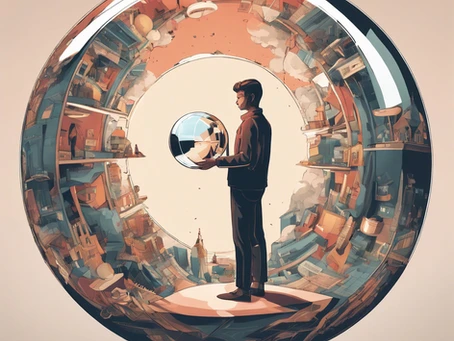“Your own self-realisation is the greatest service you render the world” my father, and first spiritual teacher, told me when I was a teenager. It is a quote from Ramana Maharshi that has stuck in my mind and my heart ever since. Another teacher has said: “You are not who you think you are”. I didn’t understand what he was trying to teach, I was confused, but I trusted him. A bit later, I also read that temples in ancient Rome and Greece had the phrase “know thyself” engraved as their most essential teaching. I wanted to understand why this Self-realisation was so significant to so many people in different times and cultures, and the following is what I learned. There are four primary beliefs that shape the way we perceive ourselves, other people, and the world. The answers to these four questions are your primary beliefs:
1. What is the world like?
2. What are other people like?
3. What am I like?
4. Who am I? The problem is that these answers are subconscious, and they are of paramount influence on how we think, feel, act, what we do, how we do it, and thus create our “reality”. In my experience, I found out that if we find the answer only to the last question, namely “Who am I?” we don’t need to spend time and energy on the other three. Self-realisation is said to be the greatest service for the world, because when this inner shift happens, by itself it changes how we relate to other people, animals, the world, and all sentient beings for that matter. There is no more need for trying to be compassionate, trying to love thy neighbour like thyself, forcing yourself to respect the morals and ethics of society – it all comes naturally. Self-realisation is nothing more than recognition, a sort of change of perspective, to some, it happens gradually, to others it is sudden. In both situations, it is deeply healing mentally and emotionally.
The path to this self-realisation is called self-enquiry. The result of which is a life full of joy, contentment, and unshakable peace.

